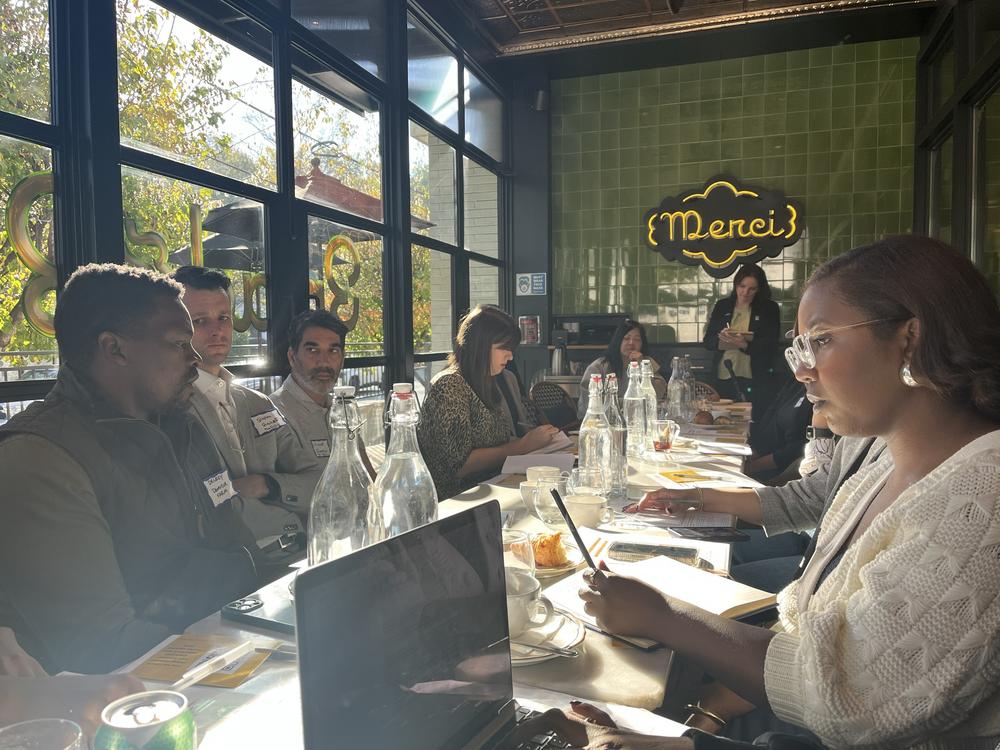
Caption
People from all different parts of Goergia's food industry met at Bread and Butterfly in Atlanta to discuss solutions to the climate change issues they're facing.
Credit: Amanda Andrews / GPB News
LISTEN: The table was filled with people who grow food and people who create and sell meals discussing challenges climate change creates for the industry. GPB’s Amanda Andrews reports on the event hosted by the James Beard Foundation.

People from all different parts of Goergia's food industry met at Bread and Butterfly in Atlanta to discuss solutions to the climate change issues they're facing.
Farmers, chefs, and restaurant owners met in Atlanta Monday to discuss the future of the food industry and the threats posed by climate change. The discussion is part of a series of events on climate solutions for restaurant survival hosted by the James Beard Foundation.
Vice President of Programs Anne McBride said not being able to access ingredients is a common concern at the events.
“So, for example, if the soil is suddenly too warm for certain crops — if a hurricane, as happened in Georgia, has wiped out crops and caused them to disappear completely or their costs are increased beyond what a chef can afford, those are some of the big challenges that we keep hearing,” she said.
Those gathered for the round table also shared their concerns about the impacts of hot winters, aging farmers, single-use plastics and labor costs. They also spoke about possible solutions such as improving communication to limit waste and educating consumers about food sustainability.
Delroy Dennisur has a 7-acre farm in Powder Springs. He said his partnerships with restaurants are crucial. But they are also getting harder to maintain.
“With the fluctuating climate and not being able to predict some of our outputs, it's kind of hard to build those relationships," he said. "You know, we don't want to overpromise and under deliver.”
Fluctuations in prices and output from farms are leading restaurants to look for ways to cut costs and reduce their carbon footprint. Brunswick Farmer Matthew Raiford said restaurants need to take a holistic approach to being environmentally friendly.
“If we're educating our consumers only up to a point, it really does not matter,” he said. “If they take that composable product and throw it into a plastic bag, that plastic bag has to disappear before that compostable piece [appears].”
Federal funding could make a difference for farmers, chefs, and restaurant owners navigating climate challenges. Event organizers called on attendees to contact members of Congress to support the federal farm bill, which has stalled in Congress since last year.